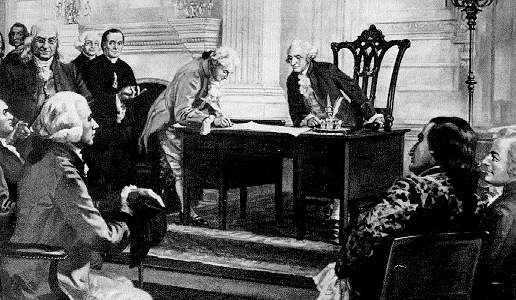
I concur with the opinion of those like John Yoo, who in this column, suggests that the Supreme Court got things exactly wrong in the Hamdan case that deals with the "right" to a "fair trial" by those who are held as prisoners capatured in the war on terror.
What the justices did would have been unthinkable in prior military conflicts: Judicial intervention in the decisions of the president and Congress on how best to wage war. They replaced his wartime judgment and Congress' support with their own speculation that open trials would not run intelligence risks. Their decision to impose specific rules and override political judgments about military necessity mistakes war — inherently unpredictable, and where our government must act quickly and sometimes secretly to protect national security — for the familiarity of the criminal justice system.
I think that one of the things that will occur as a part of the new situation that President Bush's vigorous and edgy execution of the WOT will produce is a strain on the "separation of powers" clause in the Constitution.
If folks like John Yoo are correct, that the high court has overstepped it bounds, how are we to expect the court to correct itself? Of course the Court has imposed its reach where it has no Constitutional business! So, I think (humbly, modestly, mildly) that the Congress should not only act to pass the legislation that the Court is calling for regarding the creation of statues to guide the Executive Branch in the trying of these enemies of our country.
They should also exercise their powers that the Constitution grants them the power to set the jurisdiction of the courts.
Article III, Section 2 of the Constitution grants the Legislative Branch this "check and balance" over the Judicial Branch. It reads:
Section 2. The judicial power shall extend to all cases, in law and equity, arising under this Constitution, the laws of the United States, and treaties made, or which shall be made, under their authority;--to all cases affecting ambassadors, other public ministers and consuls;--to all cases of admiralty and maritime jurisdiction;--to controversies to which the United States shall be a party;--to controversies between two or more states;--between a state and citizens of another state;--between citizens of different states;--between citizens of the same state claiming lands under grants of different states, and between a state, or the citizens thereof, and foreign states, citizens or subjects.
In all cases affecting ambassadors, other public ministers and consuls, and those in which a state shall be party, the Supreme Court shall have original jurisdiction. In all the other cases before mentioned, the Supreme Court shall have appellate jurisdiction, both as to law and fact, with such exceptions, and under such regulations as the Congress shall make.
In other words, the Congress can make specific that the Supreme Court has not jurisdiction in the matters of the question of the execution of the constitutional authority of the President to carry out the Legislative instructions to wage conflict (and all that entails).
The framers of the Constitution wrote this into the checks against the Judicial Branch, because they wanted to ensure that The United States would always be a nation of laws democratically enacted through the people's representatives and never a nation of laws enacted by the "wisdom" of non-elected and unaccountable judges. If people do not like the way that the WOT is being waged, then vote out the Republicans and elect different leaders in the White House and the Congress. But don't be happy when the Supreme Court oversteps it bounds.
So, let the Congress act to remind the Supremes that "we the people" not they the people's judiciary are the sovereign authority under the constitutional provisions by which our lives are ordered.
No comments:
Post a Comment